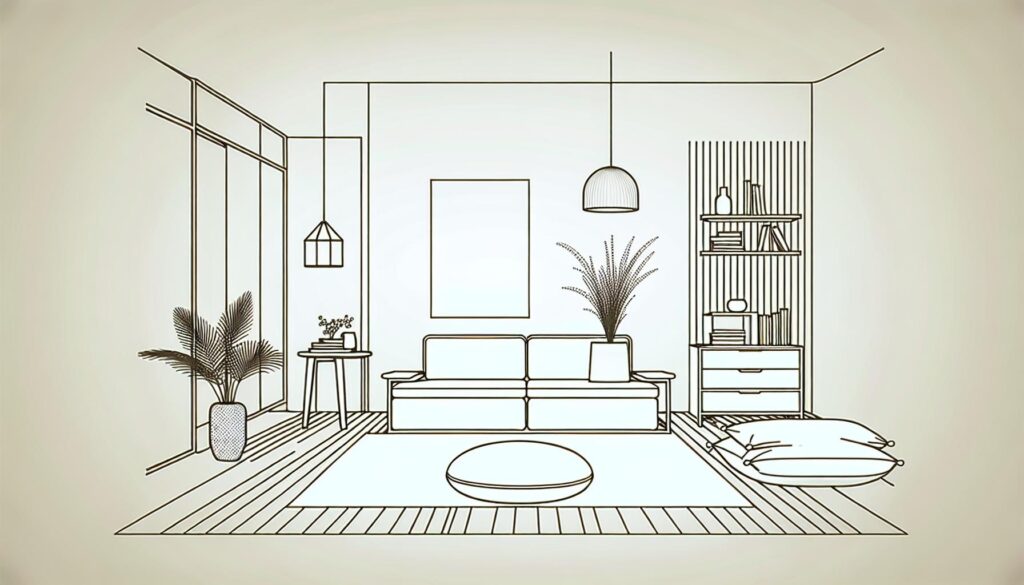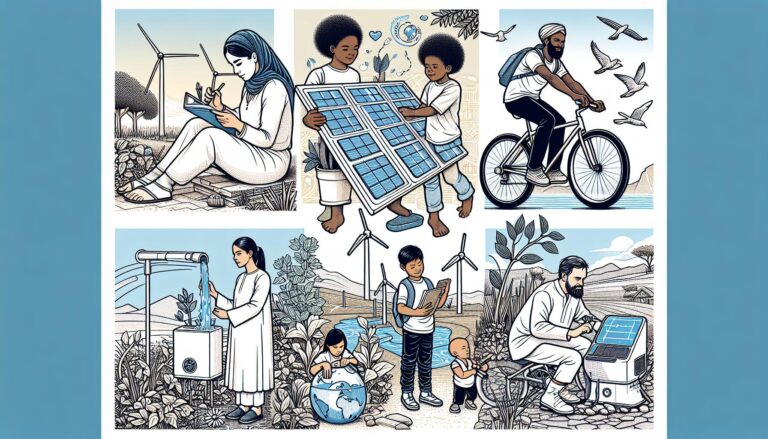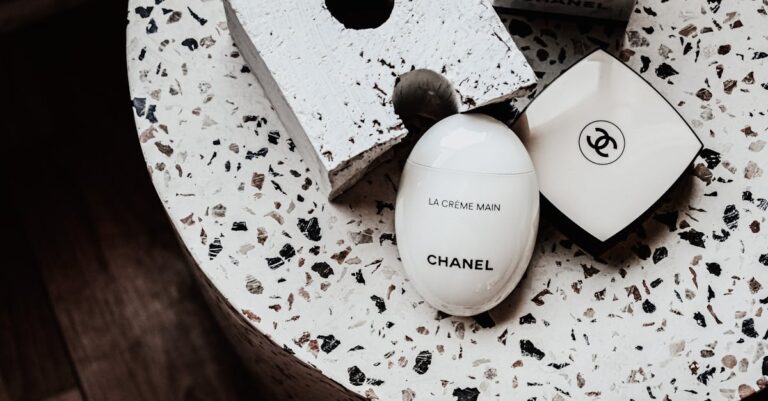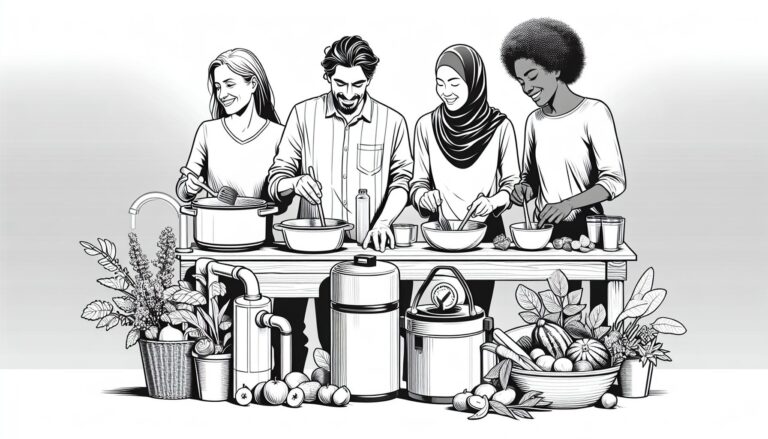I’ve always been intrigued by the concept of minimalism. It’s more than just a design aesthetic; it’s a lifestyle, a philosophy, and for some, an art form. But what does it really mean to live a minimalist life? Let’s delve into the world of less is more.
Minimalism is about stripping away the excess and focusing on what truly matters. It’s about decluttering not just your physical space, but also your mental and emotional spaces. It’s about finding freedom, peace, and joy in simplicity.
But don’t be fooled. Minimalism isn’t about deprivation or living in an empty, sterile environment. It’s about making intentional choices, cherishing what you have, and letting go of what you don’t need. It’s about living with purpose and intention. So, are you ready to embrace the minimalist lifestyle? Let’s explore this concept together.
Key Takeaways
- Minimalism moves beyond the aesthetic sphere, morphing into a lifestyle that focuses on decluttering and simplifying physical, mental, and emotional spaces.
- Minimalism encourages intentional choices, encouraging us to cherish what we have and let go of unnecessary possessions or emotions.
- The essence of minimalism lies in embracing simplicity, validating purpose for every object or aspect in our lives, and creating spaces free from the weight of excess.
- The benefits of minimalism span across physical, mental, emotional, and environmental landscapes, fostering personal growth, enhanced productivity, reduced stress, and a sustainable future.
- The principles of minimalism include intentionality, clarity, and sustainability, guiding us towards mindful choices that enhance life quality.
- Embracing a minimalist lifestyle involves identifying what truly matters, reducing material objects that don’t serve a purpose or bring happiness, and maintaining sustainable habits.
The Essence of Minimalism
Delving deeper into understanding minimalism, let’s ponder about its very essence. It’s about simplicity at its core, but not just in a physical context. Beyond the clean lines and white space, minimalism seeps into every corner of our existence, influencing and shaping our mental and emotional landscapes.
Think about the places you spend time. Your home, your desk at the workplace, even the digital environment like your smartphone or laptop. Minimalism nudges us to clear the non-essential elements. It’s not just an exercise of throwing things away, but a conscious decision to only keep what serves us. By decluttering, we create spaces that breathe – spaces that are freed from the weight of excess.
Besides this, minimalism isn’t just about what we keep, it’s also about why we keep it. Every object, relationship, project, or hobby in our lives deserves a purpose. Minimalism asks us to dig deep and validate those purposes. If something doesn’t serve us or bring us happiness, it may be time to reconsider its existence in our world.
Minimalism also spills over into our emotional well-being. Our minds can hold more clutter than any room, and minimalism can help clear that too. It pushes us to keep aside emotions that no longer serve us—resentment, jealousy, unnecessary stress, or fears. Embracing minimalism at this deep level can lead to profound changes, including experiencing more joy and inner peace.
Lastly, minimalism morphs into a philosophy—a life mantra even. It’s a lifestyle choice that promotes intentional living. By adopting minimalism, we’re not only simplifying our world but also adding clear direction to our paths. It encourages us to plot our journey with more awareness, making decisions based on what truly counts.
As you might see, minimalism is far more than a design ethos. It’s a way of life with profound implications, an art form that helps shape our world from the inside out. The beauty of minimalism is its flexibility—you can shape it to suit your needs and build a lifestyle that truly makes sense to you.
Benefits of Minimalism
Stepping into the world of minimalism, you’ll find that it’s not just about decluttering your physical space. It’s more like embarking upon a journey that can evoke a profound influence on various aspects of your life. The benefits here are in workforce, spanning across physical, mental, as well as emotional landscapes.
Physical benefits are quite expected when we’re talking about minimalism. The act of decluttering one’s surroundings lead to a cleaner, more organized living space. This in turn, facilitates a clearer mindset and more productive routine.
Now let’s ponder on the mental benefits. Minimalism invites us to eliminate unnecessary distractions and eventually leads to increased focus and enhanced productivity. It’s right to say, minimalism paves the way for mental clarity and tranquillity.
Addressing the emotional benefits, minimalism essentially allows us to improve our relationship with ourselves. It encourages us to let go of emotional baggage, aiding in lesser stress and worry. With minimalism, you’re fostering a more positive emotional state.
The importance of minimalism is not just its impact on the individual level. It also plays a grand role in promoting an eco-friendly and sustainable lifestyle contributes to a healthier planet. The environmental benefits relay on the idea of owning lesser possessions, means lesser industrial production which in turn, results in reduced environmental degradation.
Undeniably, minimalism operates on a multifaceted level, benefiting various arenas of human life and beyond. The wide array of benefits it offers makes one wonder, how embracing minimalism could potentially be a game-changer in one’s journey of life. Indeed, minimalism extends beyond simple aesthetic appeal, it’s a lifestyle that fosters personal growth, enhanced productivity, and a sustainable future.
Principles of Minimalism
To truly delve into this path of clarity and sustainability, it’s vital to grasp the principles of minimalism. The essence of minimalism lies in shedding the unnecessary, whether it be material possessions, toxic relationships or unproductive activities.
The first rule of thumb is intentionality. Everything surrounding me should have a purpose and genuinely add value to my life. This principle compels us to critically evaluate what’s needed and what’s excess, leading to mindful choices that enhance life quality.
Next comes clarity. By decluttering my physical space, I also clear out mental fog, promoting heightened focus. It’s interesting how a tidier environment boosts productivity by removing distractions. Staying organized fosters a sense of control over my surroundings, subtly reflecting in a more structured daily routine.
The next principle is no less than a boon — sustainability. Minimalism is synonymous with less consumption which automatically reduces waste generation. That’s my contribution towards a healthier environment. If I’m using and buying less, I’m indirectly conserving resources, steering towards a greener planet.
The journey of minimalism isn’t always linear though. It requires consistent effort, patience, and a will to let go. While it may trigger discomfort in the initial stages, the profound benefits waiting on the other side make it worthwhile.
Here’s a quick recap of the principles of Minimalism:
- Intentionality
- Clarity
- Sustainability
Given minimalism’s increasing popularity in contemporary society, understanding its principles paves the way for a better, more focused life. Armed with these insights, you’re all set to embrace this transformative journey.
Embracing the Minimalist Lifestyle
Knowing the principles of minimalism is one thing; incorporating them into your life is another. It’s not merely a quest to own fewer items. It’s about clearing the mind, achieving clarity, and setting intentional living standards. Here’s how you can step into the world of minimalism and reap its benefits.
Firstly, it’s essential to decide what truly matters. This step involves examining every aspect of your life. Ask yourself, what are the necessities? These often include health, relationships, and personal growth. By identifying the essentials, you can make mindful choices moving forward.
Next, commit to reducing material objects. The goal is not to live with the least amount possible, but with items that serve a purpose or spark joy. More often than not, decluttering begins at home. It’s recommended to tackle one room at a time, making sure every item left aligns with your new minimalist mindset.
Finally, maintain sustainable habits. The minimalist lifestyle is a journey that requires constant growth and adaptation. Keep these steps in mind as you go on this journey, adjusting as necessary. It’s all about making conscious, intentional decisions every day.
Living a minimalist life is no small feat. However, taking small, intentional steps can put you on track to reap profound benefits. Not only can it bring mental clarity and focus, but it can also reduce your environmental impact. The minimalist life might be challenging, but the rewards it brings are immeasurable.
So, would you try it? Would you take the plunge and dive into the world of minimalism? The choice is ultimately yours.
Conclusion
So there you have it. Minimalism isn’t just about owning less. It’s about living more, with intention and purpose. By identifying the essentials and reducing our possessions, we can declutter not just our homes but our minds too. It’s a journey of growth and adaptation, one that brings mental clarity and focus. Yes, it’s challenging. But the rewards? They’re invaluable. A minimalist life can even help us reduce our environmental impact. That’s a win for us and our planet. So why not give it a shot? Take that first step towards minimalism. After all, it’s about making space for what truly matters. And isn’t that something we all want?



